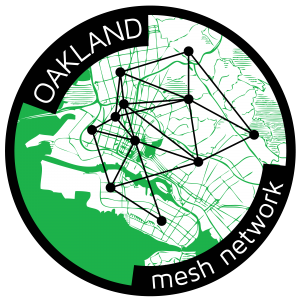Net Neutrality is dead. An unstable equilibrium that’s persisted as the default since the 90s, wherein ISPs and telcoms route all ip packets the same without regard for content, origination or destination, the potential for censorship and chilling effects in the current oligarchical environment is a serious concern. However anarchists have long seen this day coming, and that the only lasting substantive solution would be to fully embrace the decentralized promise of the internet.
Despite its aspirations and mythological treatment, the internet has never been some perfectly connected “net” capable of regenerating like Wolverine. While that goal was an underlying assumption of a variety of protocols that became popular and helped shape the development of the internet, the internet in practice is not an organic mesh of individuals, but a few thousand organizations that are loosely tied together in clusters. In theory each organization controls the connections that comprise its internal network and, again in theory, they build physical links and negotiate contracts with one another to pass packets between networks. This peering takes many forms, passing traffic at different speeds and costs, but the traffic itself has largely been treated homogeneously.
Well, okay, this isn’t entirely true. Governments around the world have installed routers and machines capable of Deep Packet Inspection (DPI) wherein a packet is routed based on its content. This is one way the People’s Republic of China, for example, has blocked connections to the Tor network.
But there are good reasons for an organization to peek inside packets and adjust their prioritization accordingly. DDOS attacks or merely bandwidth intensive but not pressing traffic can flood the network slowing down transmission rates for other content. The problem isn’t a lack of neutrality; neutrality is usually artificial, only possible where there are universally shared preferences or no pressure to optimize.
If the internet survives the next twenty years it will undoubtedly look quite different. Radicals working on overlay networks to the existing infrastructure, like Tor, I2P, GnuNet, Tahoe-LAFS, and FreeNet, are fighting the more immediate battle, but so long as only a few hundred or thousand organizations control the material connections that everything travels on we will always be in danger of the state. Even a hundred thousand networks could still be beaten into collaboration with a censorship regime. Right now the future sits on a knife edge, poised to fall into new enclosures, with state access cards and comprehensive whitelisting. And even if we win, the day still might come where the state wakes up and considers technological society itself too high a risk, sabotaging and tearing apart our centralized infrastructure.
 To head off such retreats, to keep the statists on the playing field, we must build a world of proactive, individual-scale connections. In the more trivial ad hoc limit this can look like peer-to-peer connections between the phones of passing strangers, but when it comes to building lasting resilient bonds there’s no replacing on the ground community organizing. The sort of projects anarchists have long taken the lead in, building one-on-one relationships of trust and strengthening the human roots upon which all other relations are built.
To head off such retreats, to keep the statists on the playing field, we must build a world of proactive, individual-scale connections. In the more trivial ad hoc limit this can look like peer-to-peer connections between the phones of passing strangers, but when it comes to building lasting resilient bonds there’s no replacing on the ground community organizing. The sort of projects anarchists have long taken the lead in, building one-on-one relationships of trust and strengthening the human roots upon which all other relations are built.
 There are many community mesh wifi projects with radical sensibilities, some like those of Athens, Catalonia and across Germany are already quite established and supported. Hundreds of others are still just attempted sprouts. Focusing on those in the midrange we’ve chosen to invest over six hundred dollars in People’s Open Network in Oakland, California, Kansas City Freedom Network, and AlterMundi in Argentina to provide an extra push as well as highlight their radical sensibilities and work at building community.
There are many community mesh wifi projects with radical sensibilities, some like those of Athens, Catalonia and across Germany are already quite established and supported. Hundreds of others are still just attempted sprouts. Focusing on those in the midrange we’ve chosen to invest over six hundred dollars in People’s Open Network in Oakland, California, Kansas City Freedom Network, and AlterMundi in Argentina to provide an extra push as well as highlight their radical sensibilities and work at building community.
We at the Center for a Stateless Society believe strongly in the potency and importance of persuasion in building a freed world, but we also know that world won’t be built without hands-on grappling, activist organizing and building commons. That’s why we started the Entrepreneurial Anti-capitalism project, to pay forward the good fortune we’ve received and provide a helping hand to those doing amazing, necessary, frequently thankless work with very little.
It is our hope that others will follow our lead in donating to these great projects. Each one accepts bitcoin at the following addresses:
- People’s Open Network: 12RxU4DpLpdWcmEBn7Tj325CCXBwt5i9Hc
- AlterMundi: 12mVSq3NBKTs3tCpWXyJqwdHq8p92ka6fq
- KC Freedom: 1Jmjmf2hDWsrSfnxiM27GZtNWmWGbPNEQM







